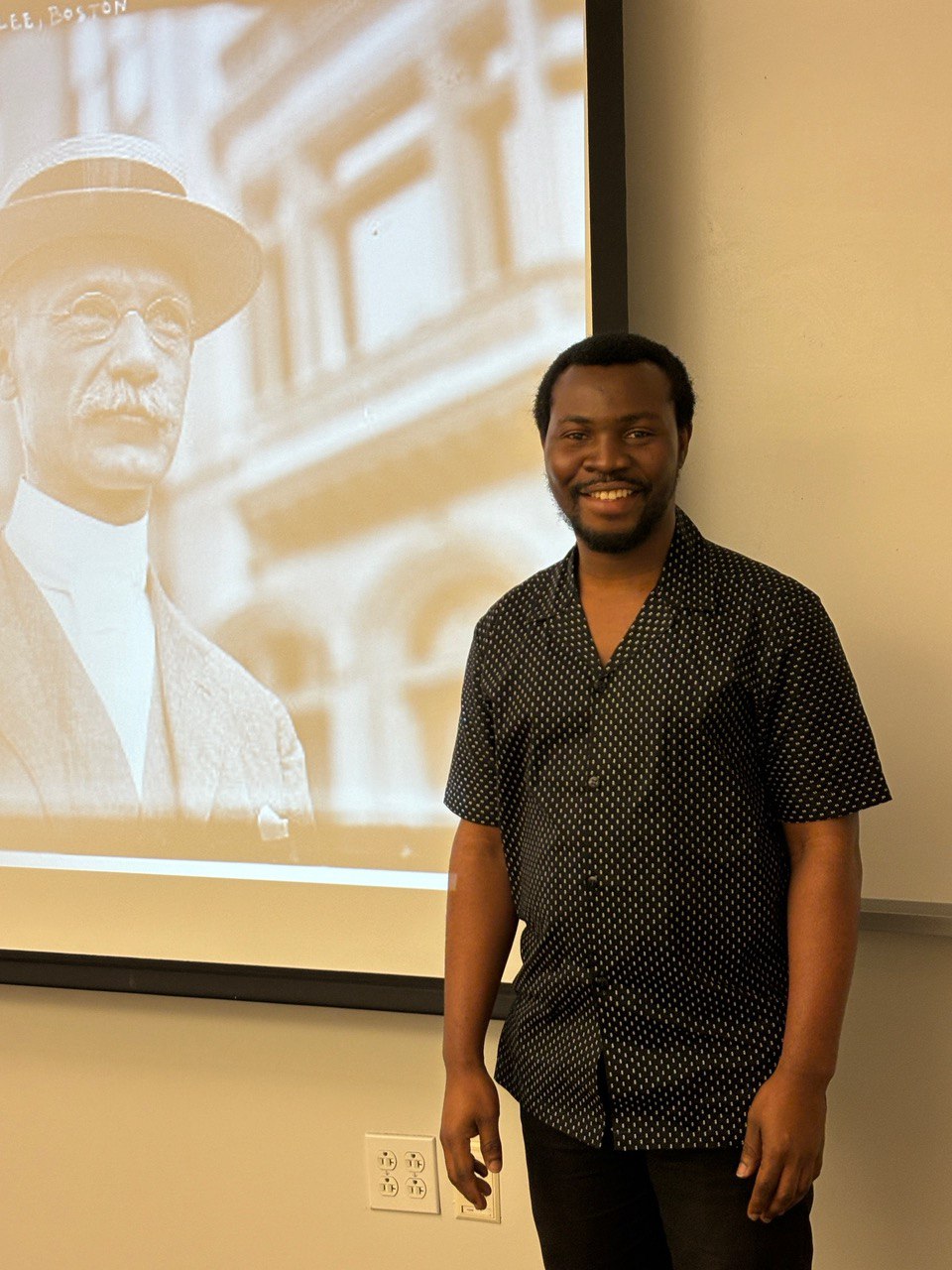Christopher Aryee

Christopher Aryee
Tell us a little about your background. How did you end up at UNI?
I am from Accra, Ghana, where I earned a bachelor’s in educational psychology at the University of Cape Coast and worked as an assistant counselor at Korle Bu Teaching Hospital, focusing on HIV/AIDS education and mental health support. Seeking to expand my expertise in public health, I chose UNI for its strong community health and recreation master's program and opportunities for hands-on research. The university’s commitment to global health equity aligned with my goal to address healthcare disparities in Sub-Saharan Africa.
Why did you choose to pursue this degree at UNI?
I was drawn to UNI because of its reputation for fostering close student-faculty relationships and offering a curriculum that balances academic rigor with community-centered practice. What truly set UNI apart was its commitment to training public health professionals who are not only knowledgeable, but also compassionate and service-driven. I wanted to be part of a program where I could engage in meaningful research while gaining practical experience that would prepare me to make a difference both locally and globally.
How did you choose your area of focus for your thesis or dissertation, if you did one? Why was this important to you?
My research on dementia care in Ghana stems from personal observations of the lack of structured support for aging populations in Sub-Saharan Africa. Having witnessed the challenges faced by families caring for loved ones with dementia, I wanted to contribute evidence-based solutions to improve quality of life and healthcare access. This work reflects my passion for culturally sensitive public health interventions.
Describe your graduate assistantship position and what you've gained from that experience.
As a graduate assistant and wellness coach at UNI Student Wellness Services, I developed marketing strategies, designed wellness programs and presented research and wellness campaigns to student groups. This role honed my leadership, program management and public health communication skills—directly complementing my academic focus.
What three adjectives describe yourself?
Proactive, compassionate, and analytical.
What does completing your degree mean to you?
It represents the culmination of my journey to bridge gaps in global health equity. This degree equips me to advocate for vulnerable populations, particularly in dementia care and underscores my commitment to lifelong learning.
What challenges did you face as you worked toward this degree – and how did you overcome them?
Balancing research, assistantship duties, and cultural adjustment was demanding. I overcame this by leveraging UNI’s support networks—mentorship from professors, time-management workshops, and peer collaborations—while staying grounded in my long-term goals.
How did UNI help you achieve your goals?
UNI provided access to research resources, interdisciplinary training and a nurturing academic environment. Professors like Kathleen Scholl, Susan Roberts-Dobie and Rodney Dieser encouraged my research work, while wellness coaching opportunities solidified my practical skills.
What’s your best memory of your time at UNI?
UNI’s "perfect size" allowed me to build close relationships with professors who mentored me beyond the classroom. For example, my head of department and my advisor’s guidance turned my research from an idea into an actionable framework for Ghana’s healthcare system.
We often say UNI is student focused; a place where professors care--and teach; a place where learning happens in and out of the classroom; and perfectly sized. Do any of these statements ring true for you?
My professors cared about my success and supported me beyond the classroom, especially during my research work. Being a wellness coach also let me apply what I learned in real-world settings. UNI’s perfect size made it easy to build strong connections and feel part of a supportive community.
What advice would you give to students considering UNI?
Engage fully—join research projects, utilize campus resources, and seek mentors. UNI’s community thrives when students take initiative.
What's next?
Next, I plan to pursue a PhD in applied behavior analysis with a focus on developing effective, evidence-based treatment plans for individuals with dementia. My goal is to combine behavioral science with culturally responsive care to improve the quality of life and support systems for aging populations, particularly in Ghana and other parts of Sub-Saharan Africa.
